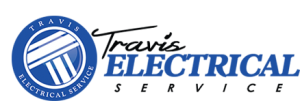Surge Protection In Clarksville, TN
Homeowners must take action to protect their home from power surges and overloaded circuits or breakers. Protecting the home against power surges could lower the risk of a fire in the home. Some properties that were constructed before 1970 may not have the proper electrical safety equipment that is required according to state and federal building codes. Property owners must review all steps for protecting their homes against electrical fires and explosions.
Protecting All Electronic Gadgets in the Property
Setting up surge protection in the home protects all devices connected throughout the property, and it prevents a power surge from causing permanent damage. When a surge happens, the property owner could lose all devices connected to the power supply. The power surge flows through the outlets and damages all the electronic circuits in the devices. This could generate a serious financial loss for the homeowner.
Preventing Surges from Appliances and Electronics
Homeowners invest hundreds of dollars into appliances and electronics for their home. While newer products may be covered by a warranty, this doesn’t mean the products are protected against a power surge. The property owner must follow precautions to prevent power surges and prevent serious damage to their appliances and electronics. If they do not get the right service for their home, a power surge could damage all their appliances and electronics at once, and they might not have coverage to replace them.
Where to Get Superior Services
Travis Electrical Service provides superior services for residential and commercial properties. They offer a variety of services to prevent dangerous power surges and keep everyone and everything safer on the property. They have a rich history of high-quality repairs and installations that are guaranteed and covered under a warranty. Their workers are trained in repairing, troubleshooting, and replacing a variety of electrical systems. Property owners can schedule an Electrical Service by contacting the service provider directly.
Reducing the Risk of a Fire
Surge Protection is a great service for reducing the risk of a fire. When a power surge happens, it could cause the wiring to catch on fire and spread throughout the home. Most older homes do not have a circuit interrupter installed to prevent the negative effects of a power surge. Studies show that most homes that were built in the 1970s and earlier will need a circuit interrupter installed to bring the properties up to code according to current fire and electrical safety regulations. When getting surge protection in the home, the property owner must determine if they have a circuit interrupter installed.
Why Layer Circuit Protection
When setting up protection for power surges, it is helpful to use layering to provide added protection for the home. This means the technicians will establish protection from the electrical panel throughout each point of use. This reduces the potential for a surge to affect every outlet in the property and damage whatever is connected to each outlet. Layering provides protection at the electrical panel first to prevent the surge and shut off the power immediately through the circuit interrupter. Next, the surge is stopped from flowing to the outlet where the surge may have started.
Layering is a great option for property owners that have entertainment or theater rooms. A common cause for power surges is plugging too many things into one outlet or overloading the outlet. In a theater room, the homeowner is more likely to have several electronic devices plugged up into one outlet. A better design distributes power to the devices from different outlets in the room and prevents a circuit from becoming overloaded.
Prevent Damage That isn’t Covered by Homeowner’s Insurance
Electrical Protection is invaluable to property owners because some homeowner’s insurance policies do not cover damage caused by a power surge. If the property is older than 1970, the property owner must install the circuit interrupter to prevent a power surge and overloaded circuits. Terms in a homeowner’s insurance policy may outline this requirement, and if the homeowner doesn’t install the device, they could lose coverage if their home is damaged because of sudden surges. The coverage may also restrict coverage for an appliance or electronic damage caused by the surge.
Homeowners must follow all electrical and fire safety regulations. When evaluating their homes, it is vital for them to allow a licensed electrician to review the wiring and electrical panels. If the property doesn’t have proper protection against power surges, the property owner will need to schedule services to mitigate risks. Installations such as a circuit interrupter could provide everything the homeowner needs to prevent an electrical fire or explosion.
